At Northwest Extremity Specialists, our team of physicians, medical assistants, and other professionals are dedicated to providing state-of-the-art care for all your podiatry and orthopedic health concerns. Read on to learn more about our specialty services and the conditions we treat.
Sports Medicine Orthopedics
Whether you are a competitive athlete or just a fitness buff, nothing sidelines you faster than an injury. At Northwest Extremity Specialists, our orthopedic specialists will assess your injury and develop a treatment plan that offers you the best chance of regaining mobility and returning to the sport you love.
Offering cutting-edge therapies and state-of-the-art surgical procedures to give our patients the best possible outcomes, we welcome youth and college athletes, life-long runners, tennis and pickleball players, and active adults to visit any of our Portland-area clinics for a diagnosis and treatment plan.
Ligament Reconstruction
Minor ligament injuries usually respond well to conservative treatment such as rest, ice, and anti-inflammatory medications. In many cases, ligaments can heal on their own. However, when a ligament is severely stretched or torn, it might be necessary to repair the tissue with surgical reconstruction.
At Northwest Extremity Specialists, we exhaust all of the conservative options before we recommend surgery, but when we know that ligament reconstruction will be effective in getting you on your feet and back in the game, we will explain the entire process and make sure you are ready to proceed. You can trust our orthopedic surgeons to help you make the right decision about treatment.
Joint Injections
At Northwest Extremity Specialists, we are pleased to offer a variety of treatment options to address chronic joint pain, including injection-based therapy that can provide long-term relief to allow you to live your life without pain. From corticosteroids to cutting-edge regenerative medicine, the therapies we offer can treat knee problems, shoulder pain, and hip injuries efficiently and effectively.
Come into one of our Portland-area offices for a comprehensive evaluation of your joint pain and a treatment plan that takes advantage of the benefits of joint injection therapy. We offer complete care in our offices, including physical therapy, injections, oral medications, and surgical procedures. Make an appointment to learn more.
Arthritis Care
Arthritis is the leading cause of disability in the United States. Over 50 million adults suffer from some level of joint pain and stiffness caused by arthritis. While different types of doctors might offer one or two treatment choices for arthritis, an orthopedic surgeon provides patients with a range of options, from highly conservative to aggressive.
At Northwest Extremity Specialists, our orthopedic specialists will work with you to reduce pain and inflammation and prevent further joint damage. If it gets to the point where we think there is an effective surgical solution, we will thoroughly explain the process and answer all of your questions. Suffering from arthritis? Contact us today!
Meniscus Repair
The cartilage that cushions the knee joint—called the meniscus—can be weakened and torn by years of wear and tear or in a sudden traumatic injury. When the meniscus is compromised, it causes pain, swelling, and even a locked knee joint. There are several options for treating a torn meniscus, and our Portland orthopedic surgeons can evaluate your condition and discuss your best path forward.
In some cases, the meniscus tear can be repaired with sutures, but in other cases, the damaged part of the cartilage might be removed. With both procedures, good outcomes can be achieved with time and rehab. Contact one of our offices in the Portland, Oregon, area to learn more about your meniscus treatment options.
ACL Reconstructions
A torn anterior cruciate ligament, or ACL, can cause knee pain and instability that severely limits activities. Fortunately, you don’t have to let an ACL injury stand between you and the active lifestyle you love. Whether your goals are to heal and prevent future injury or return to a high-impact sports or athletic program, Northwest Extremity Specialists can help you achieve your objectives. Our experienced and extensively-trained orthopedic surgeons perform minimally-invasive ACL reconstruction procedures and provide individualized pain management plans. Schedule an appointment to discuss your options.
Knee Replacement Surgery
When years of wear and tear on your knees have finally made the pain and stiffness unbearable, it might be time to consider knee replacement surgery. Whether you were a college athlete, recreational runner, or manual laborer, if you can no longer even walk without pain, talk to our orthopedic specialists about a permanent solution.
Knee replacement surgery has become one of the most common and successful procedures performed today, with over 95 percent of patients reporting an end to their knee pain and mobility limitations. Talk to our orthopedic team to find out if it's right for you.
Arthroscopy
Many tendon, ligament, and cartilage problems of the joints can be diagnosed and repaired with arthroscopic evaluation and surgery. These procedures are minimally invasive, meaning they only require small incisions that heal quickly. Patients experience less bleeding, less scarring, and less pain during recovery than patients who undergo open surgeries.
Is arthroscopy right for you? If you have painful joint damage that is not severe enough to require joint replacement surgery, an arthroscopic procedure might be just what you need. The orthopedic surgeons at Northwest Extremity Specialists can evaluate your condition and recommend the best solution to end your pain and restore your mobility.
Shoulder Surgery
The shoulder is one of the hardest-working joints in the body and when it isn’t working properly, pain, instability, and reduced range of motion can result. Are you suffering from a shoulder injury, illness, or other problem that’s making life miserable? Don’t let shoulder pain and dysfunction dictate what you can do. Northwest Extremity Specialists’ highly-skilled orthopedic surgeons provide complete care for the shoulder that includes both non-surgical and surgical methods. Schedule an appointment to find out how we can help you heal and get back to the life you love.
Elbow Surgery
A healthy elbow joint is essential not only for playing tennis and golf but also for performing everyday activities like driving, using a computer, and carrying groceries. When the joint is injured or worn down by overuse, the pain and movement restrictions can impact your life in many ways.
The orthopedic surgeons at Northwest Extremity Specialists offer a range of effective treatments for the various causes of elbow pain and dysfunction. When you have finally had enough of avoiding activities that aggravate your elbow, call one of our offices in the Portland area to schedule an evaluation to learn about your options.
Hip Replacements
If the pain in your hip is keeping you from the active lifestyle you once led, it might be time to consider a total hip joint replacement. Each year in the United States, nearly half a million patients get relief from chronic hip pain with a hip replacement, making it one of the most common and successful surgeries performed. Is it time for you to join the club?
At Northwest Extremity Specialists, our team is available to evaluate your condition and walk you through the procedure and recovery process. We are happy to answer all of your questions and help you decide if it's the right time for you to schedule your hip replacement so you can get back out there doing the things you love!
 Heel Pain
Heel Pain
We understand how important it is to be able to walk, run, and play without pain. And we pride ourselves on offering state-of-the-art treatment options to help you get better fast—without surgery.
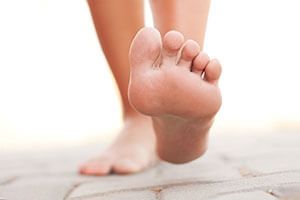 Foot Pain
Foot Pain
Whether you suffer from aching heels, swollen arches, stiff ankles, or something else, foot pain can shut you down and keep you from enjoying your favorite activities—or even just getting through your day. Foot pain is not normal, and the good news is that the Northwest Extremity Specialists offer comprehensive, effective, and advanced care options to get you back on your feet.
 Sports Medicine
Sports Medicine
We know why you play—and we know how much it hurts when an injury keeps you from what you love. At Northwest Extremity Specialists, our team of physicians offer advanced treatments and technology to get you back in the game. From state-of-the-art regenerative medicine to surgical specialties, we offer comprehensive care and a wide range of treatment options to get you back to full speed in as little time, and with as little drama, as possible.
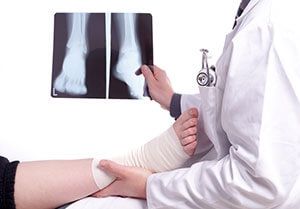 Foot and Ankle Surgery
Foot and Ankle Surgery
Our first choice is always to treat your foot and ankle pain without surgery. However, some people require surgery when conservative treatment does not provide pain relief. At Northwest Extremity Specialists, our experienced surgeons use state-of-the-art tools and techniques to provide the highest quality surgical care. Just as importantly, we take as much time as needed beforehand to listen to your concerns and goals and explain your options so that you can feel comfortable and prepared for both your surgery and your recovery.
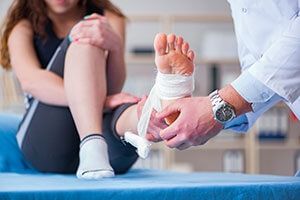 Foot and Ankle Injuries
Foot and Ankle Injuries
Injuries happen. When they do, you’re going to want an experienced team on your side. At Northwest Extremity Specialists, we care for all types of foot and ankle injuries, from sprains and fractures to dislocations, crush injuries, shin splints, and more. We leverage our training and advanced in-office technology to get you back to your regular activities as quickly as possible.
 Pediatric Foot Problems
Pediatric Foot Problems
Growing feet come with their own unique set of problems. From congenital defects like clubfoot and flat feet, to “getting-into-trouble” conditions like warts, ingrown toenails, and athlete’s foot, children need specialized, attentive, and compassionate care. The experts at Northwest Extremity Specialists are always happy to meet and treat the youngest members of your growing family.
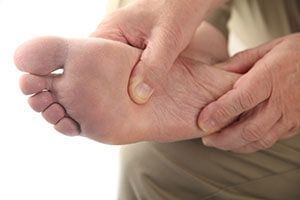 Diabetic Foot Care
Diabetic Foot Care
A diabetes diagnosis puts your feet and ankles at heightened risk. Fortunately, proper preventative care can help you avoid the worst. At Northwest Extremity Specialists, our physicians provide comprehensive options, from diabetic shoes and nerve screenings to advanced wound care and reconstructive surgery.
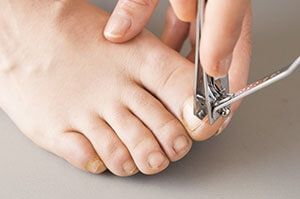 Nail & Skin Care
Nail & Skin Care
Healthy nails and skin keep your body protected from infecting agents—and they also look good and give you confidence! Our practice provides comprehensive treatment for all kinds of unsightly, embarrassing, and dangerous nail and skin conditions, including fungal infections, ingrown nails, warts, cancer, and more.
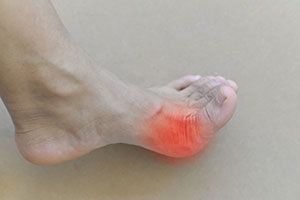 Foot & Ankle Tendinitis
Foot & Ankle Tendinitis
If you're experiencing pain, swelling, or stiffness in the backside of your ankle, you may have have a problem with your Achilles tendon. More specifically, the condition known as tendinitis. There are a number of factors that could cause this condition. Here at Northwest Extremity Specialists, we assist in diagnosing and treating your tendinitis pain to get you back on your feet.
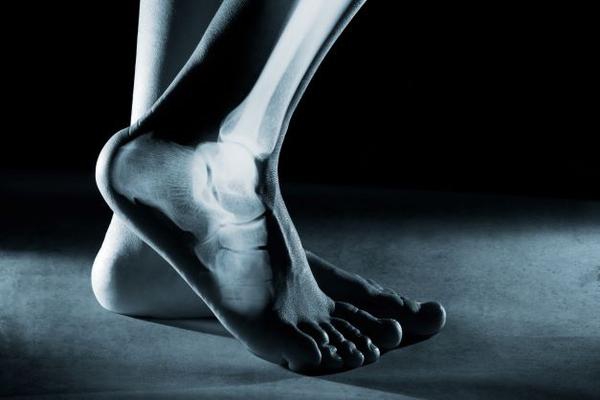 Ledderhose Disease
Ledderhose Disease
We pride ourselves in offering the highest level of expertise, allowing patients to benefit from the latest diagnostic tools, the newest treatments, and the most effective and successful treatments available.
As a provider of the latest most effective treatments, we at NES are one of the few clinics in the Pacific Northwest that offers this treatment option. The physicians at NES utilize an injectable enzyme (hyaluronidase) mixed with a local anesthetic and a cortisone medication to effectively reduce the size of fibromas and the pain associated with plantar fibromatosis.
